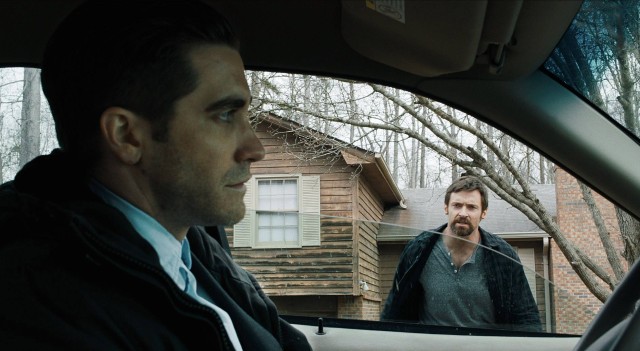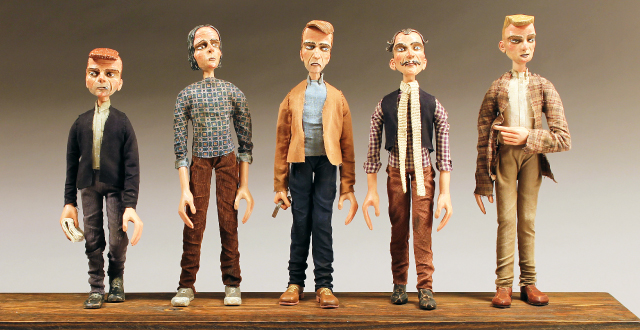Movie Review: ‘Prisoners’ Doesn’t Let Go

Denis Villeneuve’s Prisoners has a deceivingly simple premise: two young girls go missing and a search for them gets underway. The film has all the makings of a straightforward crime thriller, but where it really shines is in its ability to explore the psychology of its characters. The search for the girls is what drives the film forward, however its the mediations on the characters’ actions following the kidnapping that pushes the film into the realm of greatness.
After his breakout hit in 2011 with Incendies Villeneuve has made the requisite move to Hollywood but, thankfully, his vision hasn’t been compromised in any way. With a running time close to three hours, the film never wastes a second and never drags. Anchored mainly by Jake Gyllenhaal as Detective Loki, the small town Pennsylvania cop in charge of the investigation, and Hugh Jackman as Keller Dover, one of the girls’ father, the film is marked by a fantastic cast that also includes Paul Dano, Melissa Leo, Terrence Howard, Maria Bello, and Viola Davis. But if it’s the uniformly great cast that keeps the film grounded, it’s the beautiful photography by veteran cinematographer Roger Deakins that lifts it. He captures the rural, fictional Pennsylvania town around Thanksgiving as unforgivably bleak — it’s usually raining — but also somehow alluring and arresting.
Of course the title refers to the two supposedly kidnapped girls but it also extends to those who are drawn into the drama following their disappearance. Jake Gyllenhaal is astounding as Loki, a detective with a perfect record for solving cases but shackled by a near obsession for resolution. His life outside his job is non-existent. His Captain is aloof and lazy in comparison. Still, Gyllenhaal imbues him with a low key personality that allows him remain relatable and human.
Instead it’s Jackman’s Dover who understandably internalizes the trauma and decides that Loki and the law aren’t doing their best to find his daughter. With a wife — Maria Bello — drugged out on sleeping pills, Dover can’t sit idly by and hope that the law prevails. He becomes a prisoner of his own grief and in turn begins making questionable choices that will remain with the viewer long after the film fades to black.
It’s that aspect of the film — the decisions and actions of Dover, Loki, et al. — that is the real crux of Villeneuve’s vision. Of course he has some great assistance by Deakins and writer Aaron Guzikowski, but Villeneuve is able to synthesize their contributions into a meaningful whole. With a visual style reminiscent of David Fincher’s darker films like The Game and Zodiac (also featuring a strong Gyllenhaal), Villeneuve’s strength is to never let the tension slack and the pace is never at the sacrifice of its more interesting psychological aspects. Prisoners is a film that will satisfy those looking for a nail-biting crime drama, but also those who love to ruminate on the larger existential crises that follow in the aftermath.
Rating: 4 out of 5







